Index relies entirely on the support of donors and readers to do its work.
Help us keep amplifying censored voices today.
[vc_row][vc_column][vc_column_text]
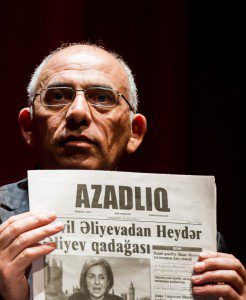
Rahim Haciyev, acting editor-in-chief of 2014 Index on Censorship Freedom of Expression Journalism Award-winning Azerbaijani newspaper Azadliq (Photo: Alex Brenner for Index on Censorship)
Civil, political and human rights are harshly restricted and frequently violated in Azerbaijan. Independent and critical journalists frequently find themselves — or their families — targeted.
Rahim Haciyev, acting editor in chief of the Index Award-winning independent newspaper Azadliq, was forced to flee Azerbaijan after years of official harassment. The government has repeatedly cracked-down on dissent.
Haciyev wrote to Index on Censorship from exile in a western European country:
I’m very sorry that the repressive policy of the Azerbaijani authorities against the Azadliq newspaper forced me to leave the country.
After the arrest of the newspaper’s financial director Faig Amirli, the authorities soon stopped issuing a print version. Amirli was arrested on obviously fabricated charges. I was summoned several times to the prosecutor’s office several times to testify about the paper’s financial affairs. The prosecutors said that this was connected with the criminal case of Amirli, but are invesitgating him under charges of “inciting religious hatred” and “violating the rights of citizens under the pretext of conducting religious rights”.
It turned out that they were interested in the financial issues of the newspaper in order to find a way to silence it. In addition, several employees of the newspaper were summoned for questioning. Then a court ordered tax authorities to comb through the paper’s financial activities. It’s clear that this was undertaken to increase pressure on the newspaper and me personally.
Aiming to cripple Azadliq, the government-owned distribution company was ordered to withhold circulation receipts — $84,000. So we weren’t able to print or even pay our bills. Three staffers are in prison — Seymur Hezi, Faig Amirli and Elchin. Each of them had sharply criticised the lawlessness and corruption of Azerbaijani officials.
In February, 11 Azadliq employees were summoned to the prosecutor’s offices to be interrogated again. Several government agencies increased their pressure on the newspaper’s online operation.
I had been warned twice in the past two years by the prosecutor general’s office that under my leadership Azadliq had been slandering Azerbaijani authorities. In their notices I was told that failure to comply with their terms would mean legal repercussions for me. But I refused. The newspaper continued to report on corruption, abuses of power and the absence of the rule of law. We were devoted to pursuing the truth.
And that is why the authorities intensified repression against the newspaper. Now this lawlessness has forced me to leave the country.
This decision was extremely difficult. I am cut off from my family and friends. I have two children and don’t know when I will see them again.
But despite all the problems I will continue to work daily for the newspaper’s website.
It’s my job, this is my job, this is my life.
Rahim Haciyev
Acting Editor-in-Chief, Azadliq
Haciyev is just one of the many journalists who have been targeted by Azerbaijani authorities in recent years. The country is ranked 163rd out of 180 countries in RSF’s 2016 World Press Freedom Index, which ranks 180 countries according to the level of freedom available to journalists. Almost everyone who speaks out against the regime of President Ilham Aliyev, including journalists, human rights defenders, activists and bloggers, are commonly imprisoned on spurious charges, such as drug and weapon possession, hooliganism and tax evasion. Reports of torture and abuse are typical by those being detained. At least 15 Azerbaijani prisoners of conscience currently remain in jail, including:[/vc_column_text][/vc_column][/vc_row][vc_row][vc_column width=”1/2″][vc_column_text]
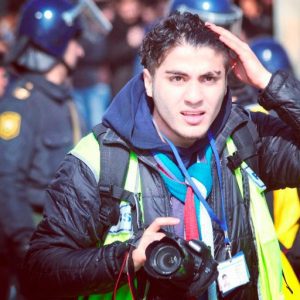
Mehman Huseynov (Twitter)
Mehman Huseynov, an Azerbaijani journalist and pro-opposition blogger, was sentenced to two years in jail on 3 March by a Baku court for defaming the police chief of the city’s Nasimi district. Huseynov intends to appeal his sentencing. According to Front Line Defenders, a group of police officers violently attacked Huseynov on 9 January. The next he was brought to court, found guilty of disobeying police orders and fined 200 manat (£96). [/vc_column_text][/vc_column][vc_column width=”1/2″][vc_column_text]
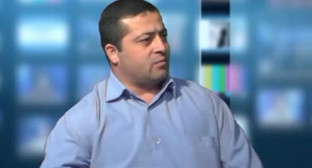
Elchin Ismayilli (IRFS.org)
Founder and editor of online news portal Kend.info Elchin Ismayilli was arrested on 17 February on charges of “extorting money” and “aggravated abuse of a position of influence”. According to the Caucasian Knot, he was also accused of blackmailing a local office, charges he insists were fabricated to silence his coverage of local corruption and human rights violations. On 18 February, Ismayilli was sentenced to a pre-trial detention period of 24 days. He has previously been subject to multiple arrests and cases of harassment related to his work as a journalist.[/vc_column_text][/vc_column][/vc_row][vc_row][vc_column width=”1/2″][vc_column_text]
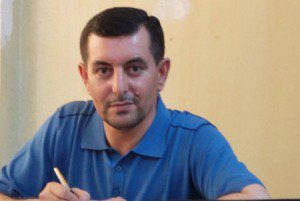
Faig Amirli (IRFS.org)
On 3 March, a court decided to prolong the period of investigation of Faig Amirli for three months, the Azerbaijan Press Agency reported. Amirli, financial director of newspaper and assistant chairman of the Azerbaijani Popular Front Party (APFP), was arrested on 20 August 2016 for “inciting religious hatred” and “violating the rights of citizens under the pretext of conducting religious rights,” according to Radio Free Europe/Radio Liberty.[/vc_column_text][/vc_column][vc_column width=”1/2″][vc_column_text]

Rashad Ramazanov (IRFS.org)
Writer and blogger Rashad Ramazanov was arrested on 9 May 2013 and sentenced to nine years in prison. According to English PEN, his charges included “illegal possession and sale of drugs”. Police claimed to have found nine grams of heroin on his body, although Ramazanov insists that the drugs were planted by the officers, who he claims also beat him up and tortured him during interrogation. Ramazanov was sentenced to nine years in prison in November 2013 on a trumped-up drug trafficking charge. PEN International reported that on 23 January Ramazanov was moved to solitary confinement for 15 days, the reason for which remains unknown. On 7 February Ramazanov was released from solitary confinement, and his family was given permission to visit him.[/vc_column_text][/vc_column][/vc_row][vc_row][vc_column width=”1/2″][vc_column_text]
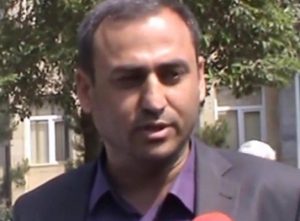
Afgan Sadigov. (IRFS.org)
Founder and editor of the website Azel, Afgan Sadygov, was sentenced on 12 January to 2.5 years in jail. Sadygov was arrested on 22 November 2016 based on accusations of “hooliganism” after he was attacked on 9 August 2016 and allegedly hit a woman, Contact Online news reported. Sadygov’s website often reports on issues such as poor infrastructure maintenance, bad quality of roads and waste of public funds in Azerbaijan’s Jalilabad region.[/vc_column_text][/vc_column][vc_column width=”1/2″][vc_column_text]
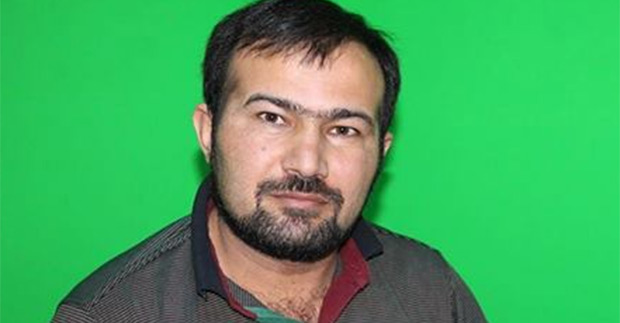
Seymur Hezi
According to MeydanTV, the Supreme Court will hear the appeal of Seymur Hezi, reporter for opposition news source Azadliq and presenter for critical TV program “Azerbaycan Saati” on 13 April. The journalist was sentenced to five years in prison on 29 January 2015 on a trumped-up charge of aggravated hooliganism, Index on Censorship reported. The charge came after Hezi was attacked on 29 August by Maherram Hasanov, a complete stranger, and defended himself. Hezi has accused President Ilham Aliyev and chief of staff Ramiz Mehdyev of ordering his arrest.[/vc_column_text][/vc_column][/vc_row][vc_row][vc_column width=”1/2″][vc_column_text]
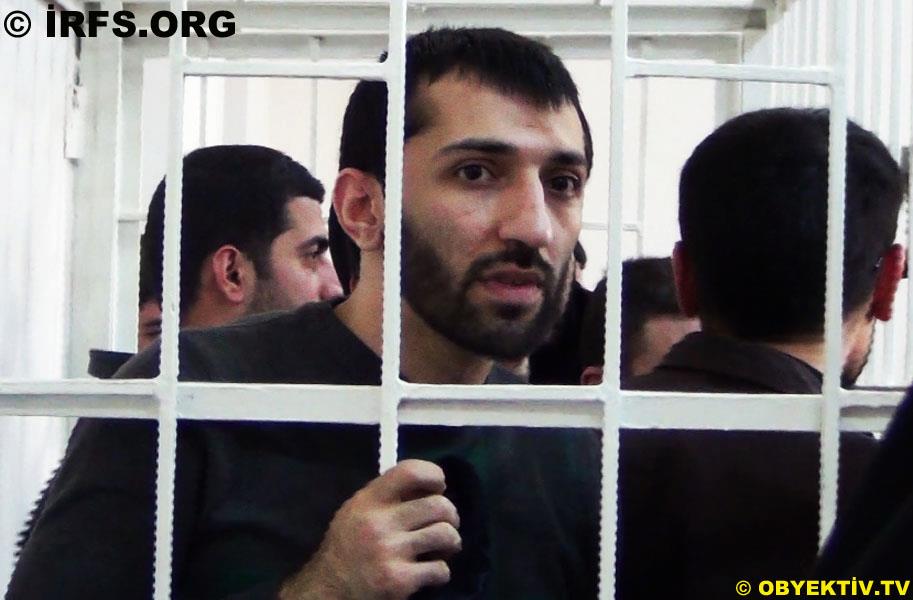
Nijat Aliyev. (IRFS.org)
The lawyer of Nijat Aliyev, former chief editor of religious website Azadxeber.org, has not been able to get hold of the text of the verdict of the Supreme Court of Azerbaijan for his client, Contact Online news reported. Aliyev’s lawyer believes that the delay has been intentional in order to prevent the filing of a complaint with the European Court of Human Rights, Contact Online news reported. According to IRFS, Aliyev was detained on 20 May 2012 and sentenced to 10 years in prison on 9 December 2013 on charges of illegal possession of drugs and weapons, incitement of religious hatred, calls to seize power and distributing banned religious literature. Aliyev’s website previously published criticisms of the government’s policies in regards to religion, the possibility of a LGBT parade in Baku and the allotment of too much funding for the Eurovision Song Contest in 2012, OCCRP reported.[/vc_column_text][/vc_column][vc_column width=”1/2″][vc_column_text]
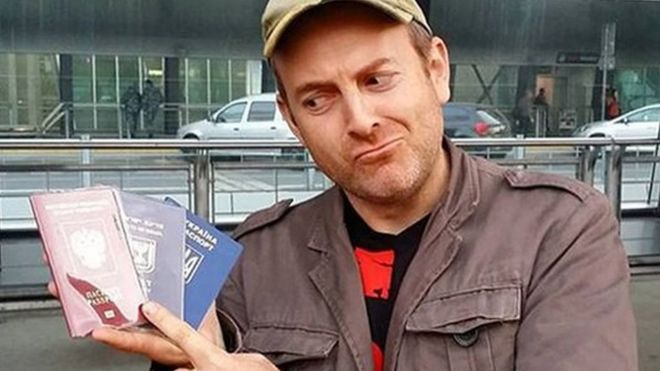
Alexander Lapshin (BBC)
Russian-Israeli travel blogger Alexander Lapshin was extradited from Belarus to Azerbaijan on 7 February. He faces up to five years in prison on charges of “public calls against the state” and “unauthorised crossing of borders,” according to Armenian News Agency ArmenPress. These charges came after Lapshin traveled to the disputed territory of Nagorno-Karabakh and sympathised in his blog entries with the Armenians he met, GlobalResearch reported. [/vc_column_text][/vc_column][/vc_row][vc_row][vc_column width=”1/2″][vc_column_text]
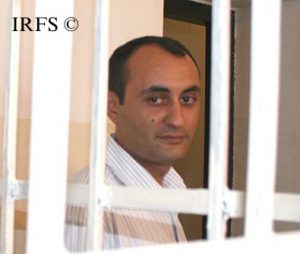
Fikrat Faramazoglu (IRFS.org)
Fikrat Faramazoglu, editor-in-chief of news website jam.az, has been detained since 30 June 2016 on the charge of extortion by means of threats, which is punishable by up to five years in prison. According to Azerbaijan Free Expression Platform, these charges originated when a local restaurant owner accused Faramazoglu of extorting money from him when asked to remove defamatory articles about the restaurant on websites owned by the journalist.[/vc_column_text][/vc_column][vc_column width=”1/2″][vc_column_text]
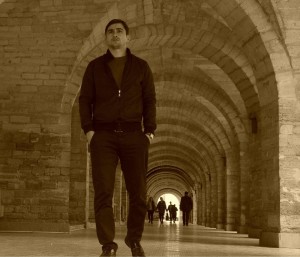
Abdul Abilov (IRFS.org)
Blogger and social media activist Abdul Abilov has been imprisoned since 22 November 2013. According to Azerbaijan Free Expression Platform, Abilov was charged with illegal possession, storage and manufacturing or sale of drugs when authorities claim to have found illegal drugs in his home and on his person, which Abilov continues to protest were planted on him. On 27 May 2014 Abilov was sentenced to five-and-a-half years in prison. Stop Sycophants!, the Facebook page previously run by Abilov, was shut down following his arrest, IRFS reported. The page was known to strongly criticise authorities.[/vc_column_text][/vc_column][/vc_row]

Khadija Ismayilova
I wrote this letter during my time in prison. I don’t remember the exact date but it was in the middle of the Ukrainian crisis and the so-called “trial” of Dilgam Askerov and Shahbaz Guliyev. The prison management had learned that I was writing something and sent officers in search of it. All my writings were taken including this letter. It was returned to me two months later when it was outdated no longer made sense to send. I am sharing it with you now:
There is an attempt to obscure human rights discourse with “mind your own business” arguments. As if human rights problems of, let’s say, the United States somehow justify the violation of human rights in Azerbaijan. This is another attempt to obscure the discourse by bringing up non-relevant “patriotic-sensitive” topics.
When the US Department of State or international organisations bring up the issue of political prisoners in Azerbaijan, or the corruption of government officials in Baku, they may ask something like: “Why did you keep silent about two internally displaced Azerbaijanis who attempted to visit their homeland under Armenian occupation despite the ongoing war and were taken hostage and are being ‘tried’ by mock trial of separatists?”
The question is surely legitimate but has nothing to do with the issue of human rights violations and political oppression in Azerbaijan.
Of course the lives of Dilgam and Shahbaz matter and the world’s ignorance with regard to criminal actions of Armenia and a separatist regime in occupied Karabakh has been an issue for a long time.
I do admire the courage of Askerov and Guliyev, who ignored the “de-facto” results of the occupation and paid continuous visits to the graves of their siblings and their homes under occupation. They have been doing it for the past ten years, using mountain paths, bypassing Azerbaijani troops and occupants, right up until they were captured.
The occupation of their homeland of Kalbajar, which has never been an Armenian settlement and has never been disputed, was a crime. Their custody in occupied Shusha by a criminal regime of the separatists is also a crime. Azerbaijani society is right in expecting the world to react adequately. Separatists in Karabakh are no different from those in Ukraine’s seized regions and it is fair enough to expect that the world would react to the ongoing occupation of Nagorny Karabakh as strongly as it did react to the occupation of Ukraine’s seized regions.
However, another fair question is: what does this to do with the crimes of president Ilham Aliyev’s regime? How can it be used as justification? This lame attempt by Azerbaijan’s ruling regime to obscure the human rights discourse is a very dangerous one. Is the Azerbaijani government trying to tell the world that they must have the same expectations of the criminal regime in Nagorny Karabakh as they have from the government of Azerbaijan, a sovereign state, a member of the Council of Europe, OSCE, UN etc?
My problem is not the law self-esteem of Aliyev’s regime. I am rather troubled with what role they give to the statehood of Azerbaijan in this lame argument. No matter how low my expectations are of Aliyev and his clique, I have never ever thought of comparing the state of Azerbaijan with the criminal separatist regime.
I don’t think the officials in Baku have paid due attention to this side of the story. In the tit-for-tat business of politics, the argument put on the scale must not be the state’s dignity. The Azerbaijani government had put too much into the game of securing power for Aliyevs. As dictatorships rarely have solid arguments, I do understand that justification of oppression is not an easy task. I don’t know if leading schools of the world teach it or not. The Soviet-era schooling system of partshkola exhausted its limits long ago and its remnants are only good for addressing uneducated masses inside the country. It is for those who are oppressed so much they cannot demand their government stop using the conflict as justification for all mismanagement, corruption and crime.
The people of Azerbaijan deserve better than what they have. The world and the organisations Azerbaijan is a member of deserve better representation from the country so it would be possible to carry out civilised discussion. And more than that, the 21st century deserves better than remnants of old Soviet partshkola in diplomacy.
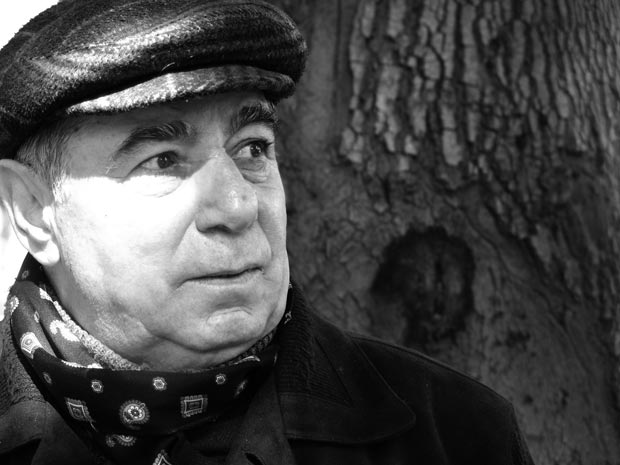
Akram Aylisli
Index reported on 22 April that the case against Azerbaijani writer Akram Aylisli, who previously faced charges of hooliganism after being detained at Baku Haydar Aliyev International Airport on 30 March, has expanded to include charges of resisting the authorities with violence. Under article 315.1 of the criminal code, this is punishable by up to three years in prison.
The move came following an open letter Aylisli sent to Azerbaijani President Ilham Aliyev. In it, he points to the absurdity of the claim that a “78-year-old heart patient, a weak man” could assault a 35-year-old “stocky athlete”. The writer asked the president to intervene and remove the criminal case against him.
Here is the translation of the letter:
President of Azerbaijan Mr. Ilham Aliyev
Dear Mr. President,
The investigation of the “criminal case” against me is about to be finished.
My supposed “crime” is that when I arrived to Baku Heydar Aliyev International Airoport, intending to travel to Venice to take part in literary festival on 30 March-2 April, I supposedly made an act of hooliganism, not captured on any of the video surveillance cameras, and later supposedly assaulted a border service officer, in a room with no surveillance cameras, punching him with such force as to cause bruising.
To convince anyone that a 78 year old, suffering from heart condition, physically weak person can generate such assault physical force against a 35 year old stocky athlete is, most certainly, absolutely impossible and beyond belief. I should most sincerely tell you that, having learned of this absurd accusation in the police department, I absolutely could not believe that it may reach the court of law.
I thought that measures should be taken against such primitive accusations put forward against celebrated writer who was awarded a high order of “independence” for exceptional contribution to Azerbaijan literature. I could not hide from you, Mr. President, that, I expected from you personally, that in this matter your authoritative voice would be heard.
However, unfortunately, my hopes were in vain. Once again I became convinced that top government structures are not interested in me living a tranquil life, continuing my many years of literary work.
It is very difficult for me to understand who would benefit from this unprovoked incident in the airport. However, it is clear that I could not, at all, be the side interested in stirring such an incident.
In the last few years my family had to suffer all kinds of insults and hardship, and I had very strong psychological need for opportunities for peaceful existence in my own country. However, with much regret I must state that the reality is quite opposite, and I have all reasons to believe that the campaign against me and my family, started 3 years ago, is to continue.
In my opinion, Mr. President, there was no need to restart this campaign!
First of all, the reason for that is that my short novel “Stone Dreams”, published several years ago, in the recent times finally left the political context and started to live an appropriate, unbiased literary life. Many well-established publishing houses, not involved in international politics, estimated the book highly just for its artistic and esthetic qualities and decided to publish it. I was very happy that my book is not serving seasonal nationalistic interests, but via its humanistic ideas and high humane values serves the national Azerbaijani literature tradition
I could name globally recognized scientists, artists and politicians who accepted my book as literary work with humanistic and peace-loving perspective.
I often get letters via the internet from ordinary people from many countries. In those unsolicited letters, the literary and esthetic values of the book are emphasized.
For example, I was very touched to read a letter from the 3rd year student of Bratislava University’s Russian and Eastern European Studies faculty, Patrisia Patzelitova, who has written course work and is now writing a bachelor diploma on my long-suffering novel “Stone Dreams”. The author of this letter, who is very far from any kind of political intrigue, who sees no difference between ordinary Armenians and ordinary Azerbaijanis, tries to evaluate the artistic ideas of “Stone Dreams” most objectively.
In my opinion, it would be wrong to speculate that my nomination for Nobel Prize by 13 respected professors from different countries is in any way an Armenia-related initiative. None of those intellectuals are political actors interested in temporary, short-term political intrigue. I was long sure that while we ignore the opinion of the world, the world will also not listen to us.
I could provide many examples of sympathy towards my work from unbiased people that should change the attitude of Azerbaijan’s government towards me. However, unfortunately, it has not changed.
The government, in line with historic precedence, wanted to prove that it could never be wrong. However, I always thought that the government may also be wrong and may try to cover that behind the curtain of pseudo “people’s fury”.
There is nothing strange about this. The history knows that, from time to time, there is misunderstanding between politicians and artists, and those misunderstandings are not without their own reasons.
If the government policy was indeed impeccable, it could not so happen that a short artistic novel, however wrong and harmful it could be, would cause such a disturbance to the state’s ideological life.
Alongside with the need for economic reforms, the need for serious reforms in country’s ideological and political life is as urgent as ever, Mr. President!
It is not hard for me to understand that this work, which caused me much insult and hardship, created certain problems for the current Azerbaijan’s governing ideology. But I could not possibly agree that this work, in any way, discredits Azerbaijani people. In my opinion, the protagonists of the book: Saday Sadagli, Dr. Abbasov and Dr. Farzani are the bearers of high moral standards, who feel compassion towards all people, regardless of their national and religious identity. These are bright members of Azerbaijani people, its intelligencia. Those characters could not possible denigrate the people of Azerbaijan.
I’m 79 years old now, and my days are numbered: not by years, probably by months and days. Now, certainly, I worry more not about my own destiny, but destiny of my family, the plight of my sons who remain unemployed for my supposed “sins”. It would be naïve of me to expect that someone would show mercy and offer jobs to my children in the country of wolfish officials, who nod to every command from the top and differ from robots only by their endless greed and passion for bribes. That these stresses and hardship happened just because of a literary work seems a nightmare to me.
The last three years I live in the environment of psychological terror, and I daily witness the cruel violation of my basic human rights.
Even the doors of my country house are totally locked on me. It is not that I’m worried of disrespect from my countrymen: it is meaningless to be afraid of that, as I’m certain that the attitude of ordinary people towards me has not changed. Those doors are locked because in my small homeland, on each step I’m worried about possible ordered provocations.
As you probably know, “Stone Dreams” is not the first of my works published overseas. This book is a logical continuation of my body of work, and it’s not my fault that “Stone Dreams” only differ from my previous work in its theme. Also it’s not my fault that in other countries the book is judged by different criteria than in Azerbaijan.
It is not by accident that the publishing house that published “Stone Dreams” last year, also became interested in publishing my 1960s trilogy “People and Trees”. The book of my selected works, published in St. Petersburg, Russia in 2014, is also planned for publication in the United States. It should not escape attention that “Stone Dreams” is evaluated in many counties as masterly artful prose.
Mr. President, I have never been the trouble-maker who likes to create public scandals. Neither am I a culprit of such wide coverage of the airport “incident” in the international media.
My emotional address to you comes from my hope and belief that your word will have a decisive role in finding out the truth, establishing and punishing the real culprits of the said incident.
Sincerely,
Akram Aylisli
Related:
Azerbaijan: Akram Aylisli faces further charges after sending letter to president
Azeri writer Akram Aylisli releases speech he was due to give at Italian festival
Azerbaijan: Persecuted writer Akram Aylisli faces charges of “hooliganism”

Akram Aylisli
The case against Azerbaijani writer Akram Aylisli, who previously faced charges of hooliganism after being detained at Baku Haydar Aliyev International Airport on 30 March, has expanded to include charges of resisting the authorities with violence. Under article 315.1 of the criminal code, this is punishable by up to three years in prison.
The move came following an open letter Aylisli sent to Azerbaijani President Ilham Aliyev. In it, he points to the absurdity of the claim that a “78-year-old heart patient, a weak man” could assault a 35-year-old “stocky athlete”. The writer asked the president to intervene and remove the criminal case against him.
“Following [the letter], against all my expectations, my situation rapidly got worse,” Aylisli told Index on Censorship, referring to the new charges. “Also, a new vicious, libellous public campaign against me started in media,” he added.
In March, Aylisli was detained for 12 hours at the airport when he was due to participate in an Italian literary festival. He was accused of assaulting border guards and his travel documents were confiscated.
“Absurdly and illogically, this alleged incident of punching a border guard happened well after the plane departed and was later used by the border service as an explanation for denying the border crossing before the plane had left!” he told Index on Censorship.
Aylisli was once a popular writer in Azerbaijan until 2012 and the publication of his novel Stone Dreams, which tells of the massacres of Armenians in Azerbaijan. His books have since been burned and threats have been made to cut off his ear. Index on Censorship has published one of his short stories, translated into English for the first time, its latest issue.